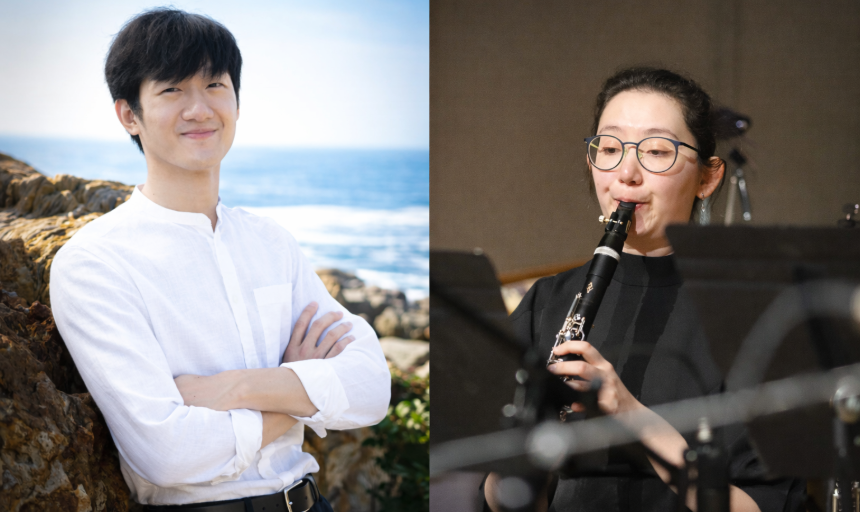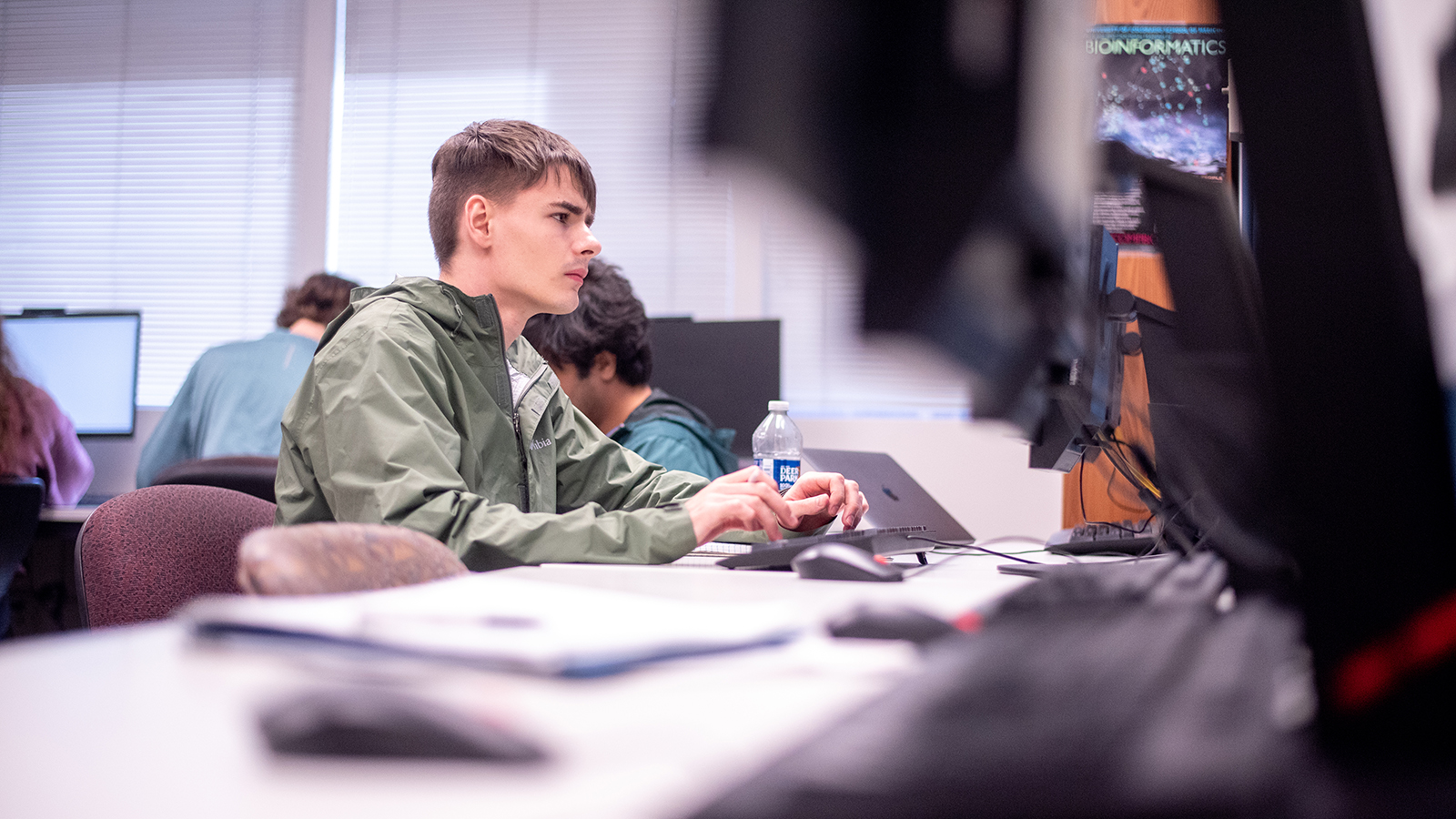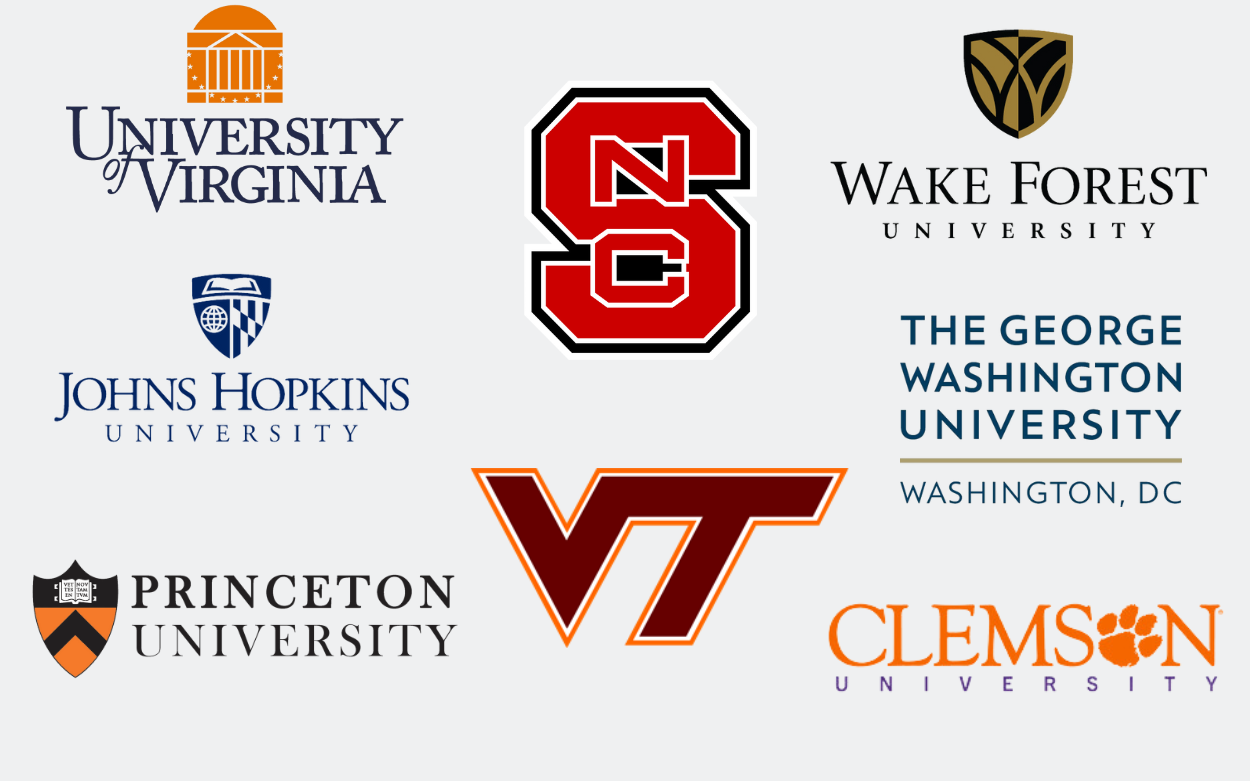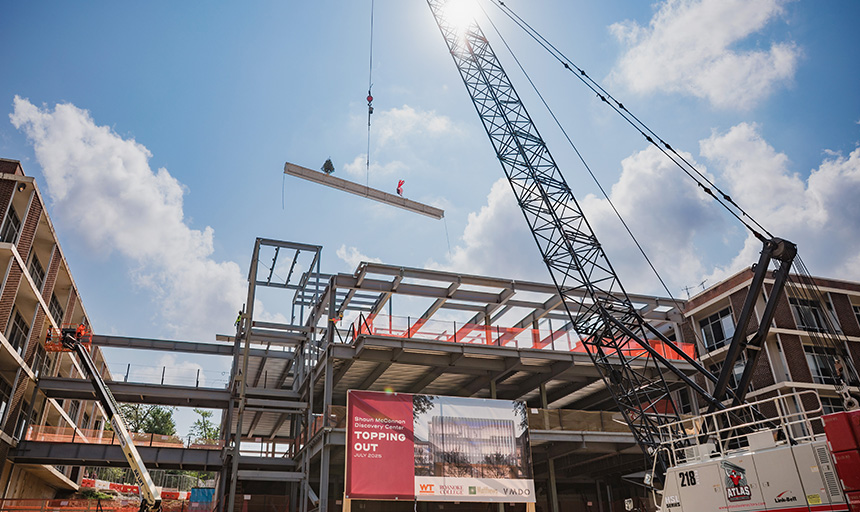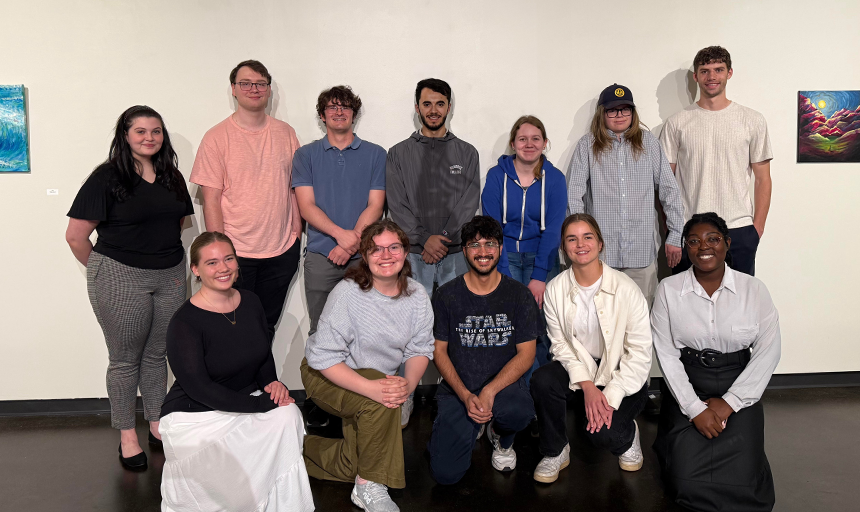Computer Science
Available as a major or minor
A computer science degree will give you a deeper understanding of the theoretical foundations of computer science and prepare you for grad school.
As a computer science major at Roanoke, you can gain valuable on-the-job experience through part-time work in the information technology department. Internships with local businesses and government agencies can also provide valuable workplace learning experiences.
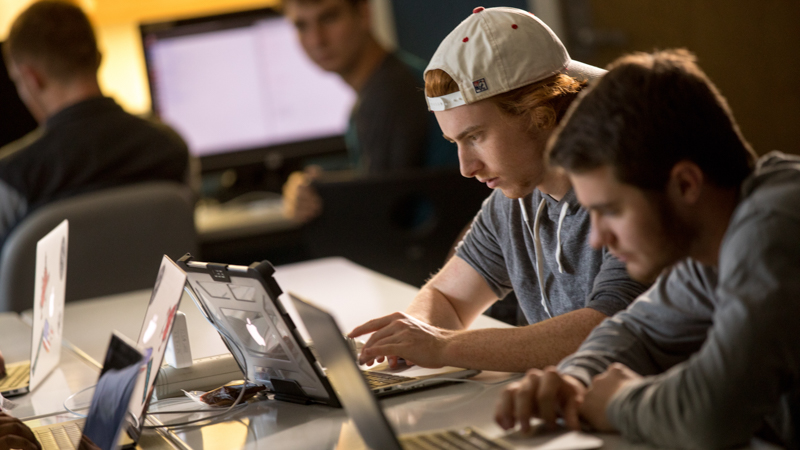
Curriculum & Courses
Student Experiences
Direct To Tech Master's Program
Computer Science Jobs & Outcomes
Faculty
News
-
This interactive workshop, the first of a two-part event, is intended to train researchers to better communicate their work with people outside of their field. Folks from all programs are encouraged to attend!
- Date:
- March 27, 2026
- Time:
- 4 - 6 p.m.
- Location:
Antrim Chapel
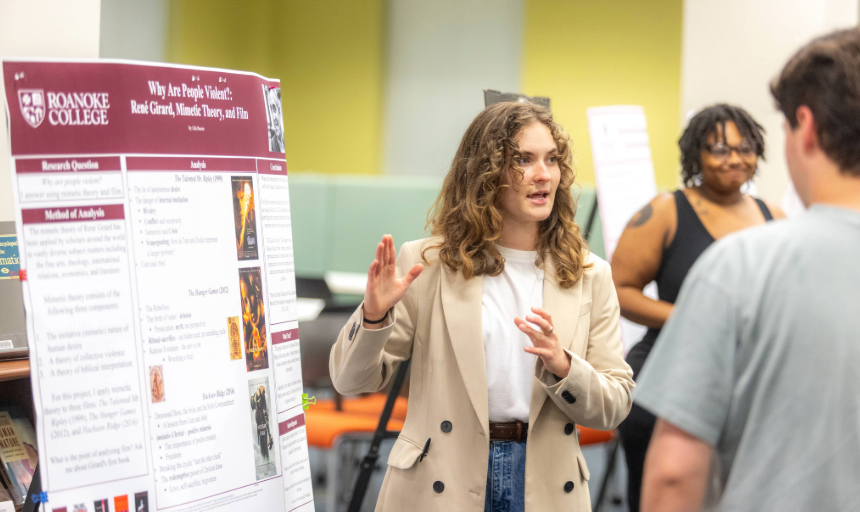
-
In a combined talk and recital, visiting artists Nikki Pet and Lyndon Ji showcase how technology can be used to amplify human artistry and create immersive, enchanting experiences for audiences.
- Date:
- April 19, 2026
- Time:
- 4 - 5:30 p.m.
- Location:
Olin Recital Hall
